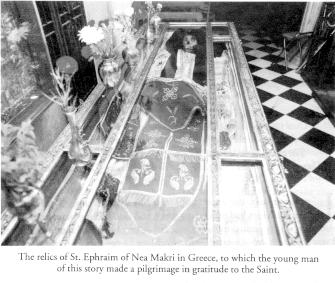
Boredom can easily lead to loneliness and loneliness to depression. Saint Theophan gives us some good advice how to avoid boredom. He says that each time you feel yourself alone, think of God and your guardian angel who is with you at all times. Take advantage of all such opportunities for a moment of solitude with God and have a conversation with Him. Then learn to fill your day with meaningful activities.
He shares advice a father gave to his daughter.
Everyone has a number of daily chores, which they work off like some sort of quitrent. There are many people, however, for whom these quitrent chores are simple and do not take much time. there is a lot of time left over whereby, if it is not filled with anything, there is no way to avoid boredom. Here is the most reliable way for you to avoid it: Arrange things so you do not have a single moment and al your time is filled with suitable occupations so that , upon completion of one activity, you have another one ready to begin.
What kind of activities should these be? 1) Aesthetic occupations: music, singing, painting. 2) Some sort of handicraft: knitting, needlework and the like. 3) The best remedy for boredom, however, is to acquire a taste for serious reading and the study of subjects that you are unfamiliar with. It is not so much the reading that drives away boredom as the study. If you follow this smile advice you will find shortly you will not a enough time to do everything you want to do. You will lose that feeling of loneliness and avoid the terrible problem of depression. Even one who lives alone and rarely has guests will have a life filled with activity, one without boredom or loneliness.
Take up the reading of spiritual books and avoid frivolous novels and such. Dig into something that will engage your mind fully. Avoid the trap of TV which can dumb the mind. If you do go to the TV when bored then seek out something that will give you new insight about our world and that will engage your mind in an active way.
You can also seek out regular activities such as volunteering at Church or with another agency in town. But it's not necessary to become over active in social activities as these for many create to many tensions and often includes engaging with people who distract you spiritually. Each person has a different makeup so you need to seek activities that fit your personality, especially those that keep you learning. To be alone does not mean to be lonely. In reality we are never alone. God is always with us along with our guardian angel.
The more you study spiritual matters, including the Church history, teachings of the Fathers, as well as Holy Scripture, you will discover forever new topics which you are not aware of. Each one will broaden your world view and open you to greater and greater spiritual awareness at the same time. Your desire to learn will never be satisfied. Read and keep busy and you will become wise, devoid of loneliness. You will become more aware of God's ever presence.
Saint Theophan the Recluse
Reference: The Spiritual Life, pp 265-266






